
Three animal welfare organizations in Guanacaste are planning upcoming low-cost spaying and neutering campaigns for dogs and cats.
Two of them will take place this Saturday, January 30, and Sunday, January 31, in Nicoya, Cartagena and 27 de Abril. The other campaign, which is for cats only, will take place on February 13 in Liberia.
But what measures should be taken into account in the midst of the pandemic?
To take your pet, you must schedule an appointment, according to the guidelines from the Ministry of Health (in Spanish) for the reactivation of sterilization campaigns.
According to the health protocol:
- Only one person in the family should bring the pet.
- You shouldn’t go if you have respiratory symptoms (cough, fever, sore throat, nasal congestion). If you have symptoms that day, ask a family member or neighbor to take your pet for you.
- On the day of the castration, you must wear a mask.
- People on the campaign team should also wear a mask and gloves.
- You must respect the distance measure of 1.8 meters while waiting for your pet .
- The facilities where the campaign will take place must be ventilated, have sinks, soap, alcohol and toilets.
- The personnel in charge of the campaign must clean surfaces constantly.
- It is recommended that you disinfect or wash the pet carrier or whatever you used to take your pet and that when you get home, you give your pet a clean blanket to lie down on. Wash the one you took to your appointment immediately.
“The requirements are vital in order to hold the event properly and for nothing to happen that is going to affect people or animals,” said Lineth Matamoros, one of the organizers of the campaign in Cartagena and 27 de Abril.
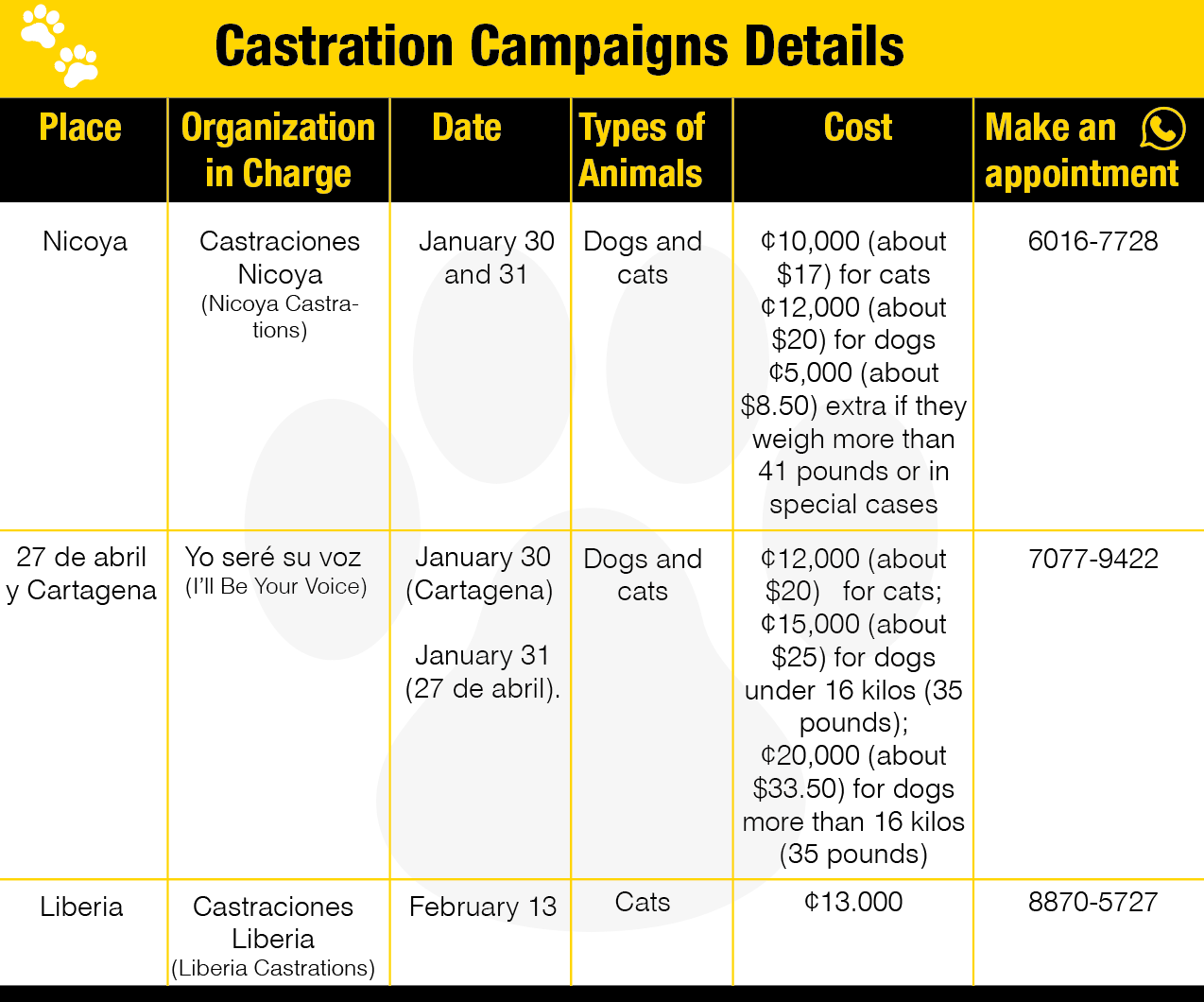 Milagro Barboza and Suzy Guzman direct Nicoya Castrations. Barboza explained that they are also performing low-cost sterilizations (¢15,000, which is about $25) for cats every Friday at the Dalay Delgado veterinarian’s clinic in downtown Nicoya. “What we want is to help reduce the overpopulation of cats in the canton,” she said.
Milagro Barboza and Suzy Guzman direct Nicoya Castrations. Barboza explained that they are also performing low-cost sterilizations (¢15,000, which is about $25) for cats every Friday at the Dalay Delgado veterinarian’s clinic in downtown Nicoya. “What we want is to help reduce the overpopulation of cats in the canton,” she said.
Responsible Pet Ownership
The manager of the Humane Society International (HSI) animal companion program, Amanda Chaves, explained that sterilizing is part of responsible pet ownership and also contributes to community public health and to the animal’s behavior.
“We avoid biting, tearing apart garbage, fighting among themselves. It reduces aggressiveness in males, and females will live much longer by avoiding tumors in mammary glands and the uterus. It also controls cats that are in heat and make that scanda,” she cited as examples.
“I always say, if you have a pet, responsible ownership includes veterinarian, vaccinations, food and sterilization. It’s not “because my dog doesn’t go out, then no,” she added.
According to World Animal Protection, there are about 700 million dogs in the world. “In many communities, they are allowed to roam freely, but every day, there is more evidence that most dogs have an owner.”
High-Quality Sterilization
Amanda Chaves, from HSI, emphasized that even though the campaigns are low cost, they always give priority to quality surgeries instead of quantity.
“Although they are low-cost or social welfare campaigns, we always promote and suggest that they be done with the latest veterinary surgery techniques, and that the quality of the supplies is correct.”
The organizations that plan the campaigns ensure that they have permits, veterinarians and all of the necessary tools to perform the castrations.
Lineth Matamoros, from Yo Seré Su Voz (I’ll Be Your Voice) Guanacaste, said that even if an emergency occurs, such as an animal not responding well to anesthesia, they have the ability to respond appropriately. “We have the same ability to treat them as if we were in a veterinarian’s office,” she said.
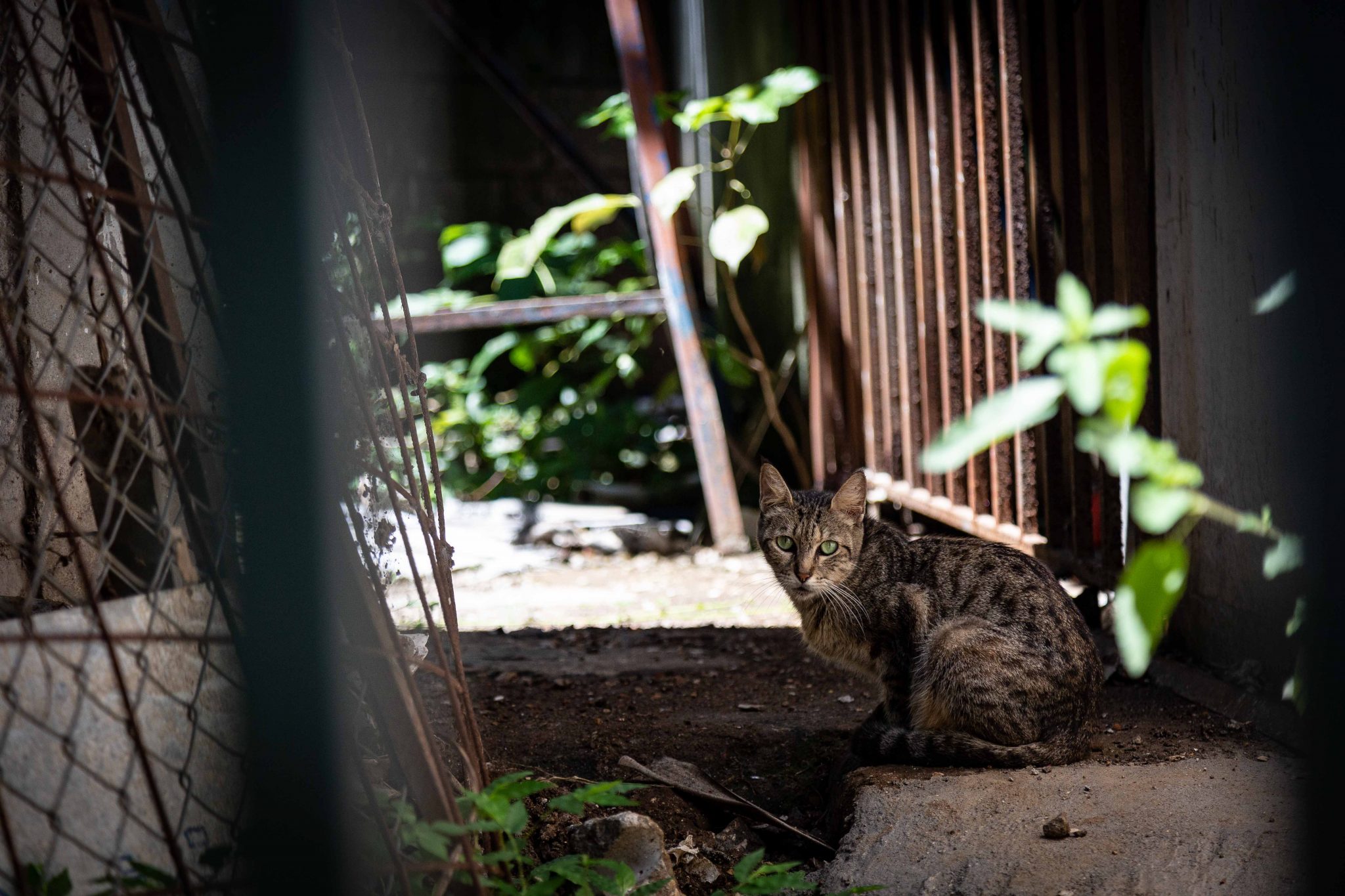
Illustrative image of a stray cat in the Nicoya market. Photo: César Arroyo Castro
Fat Pets and Other Castration Myths
Will my dog or cat lose virility? Will it become obese? Will it still protect the house? HSI put together a series of myths and facts about spaying and neutering. We are including them below so you have the appropriate information for deciding whether to spay or neuter your pet:
- Myth: An animal needs to have a litter/one heat before sterilization.
Fact: Medical evidence indicates that females spayed before their first heat are typically healthier.
- Myth: It’s not natural to spay/neuter and will upset my dog or cat.
Fact: The domestication of animals removed them from the “natural order” and placed responsibility for their care with humans. Applying human emotions to animals is neither realistic nor applicable when it comes to identifying a need for sterilization.
- Myth: If I neuter my dog, it won’t be protective anymore.
Fact: It is a dog’s natural instinct to protect home and family. A dog’s personality is formed more by genetics and environment than by sex hormones.
- Myth: My male dog or cat will feel like less of a male.
Fact: Pets don’t have any concept of sexual identity or ego. Neutering will not change a pet’s basic personality. He does not suffer any kind of emotional reaction or identity crisis when neutered.
- Myth: My pet will get fat and lazy.
Fact: The truth is that most pets get fat and lazy because their owners feed them too much and do not give them enough exercise.
- Myth: But my dog (or cat) is so special, I want a puppy (or kitten) just like her.
Fact: Your pet’s puppies or kittens have little chance of being an exact copy of your pet. Even professional breeders cannot make this guarantee. There are homeless pets waiting for homes who are just as cute, smart, sweet, and loving as your own.


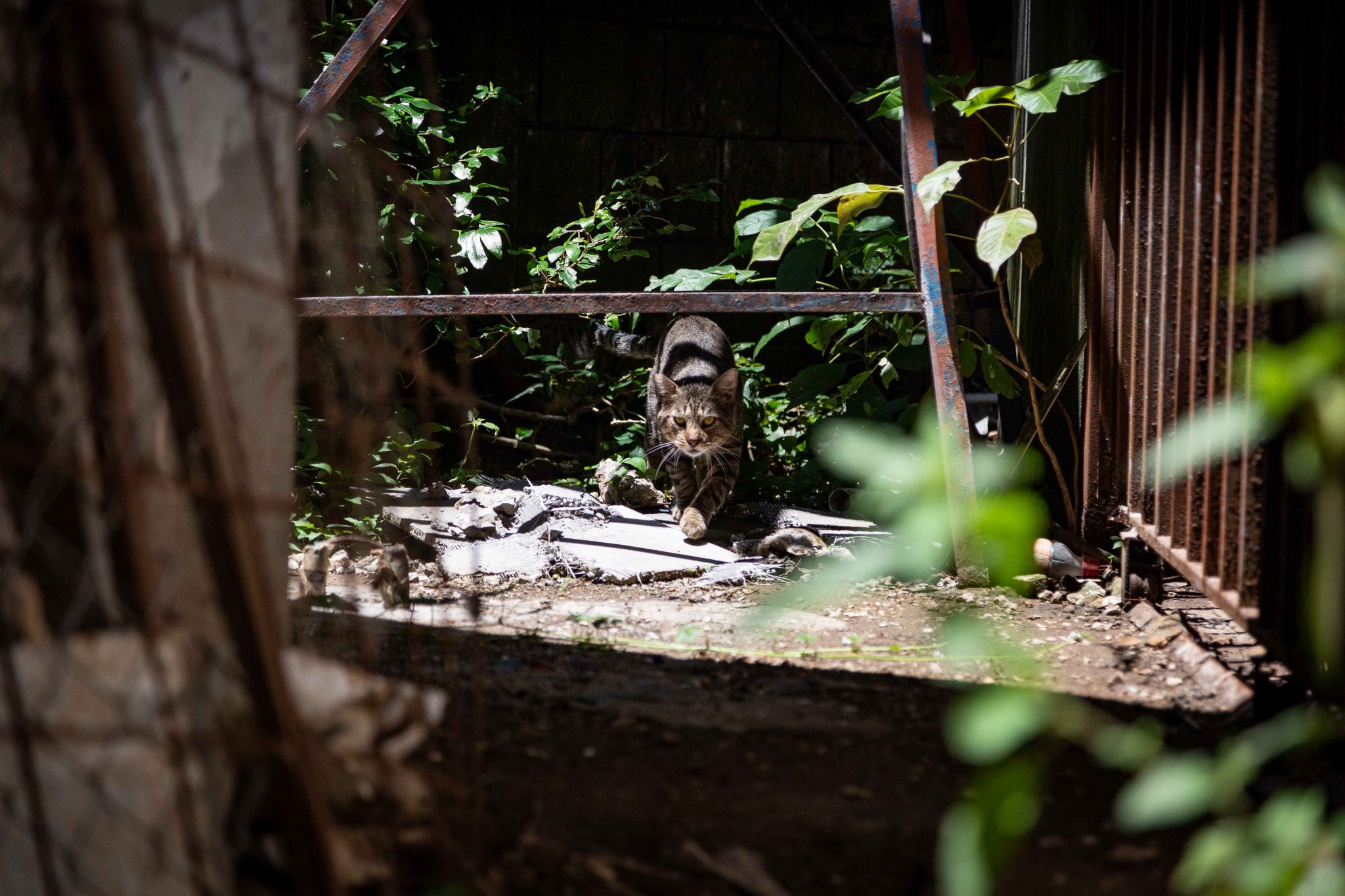
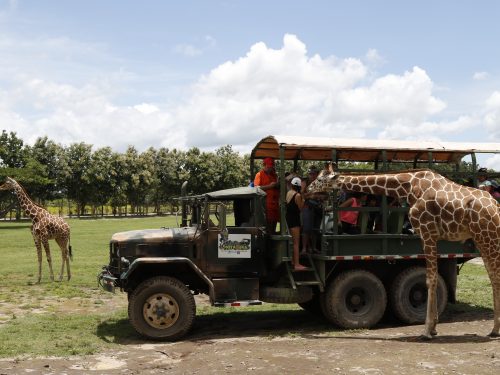
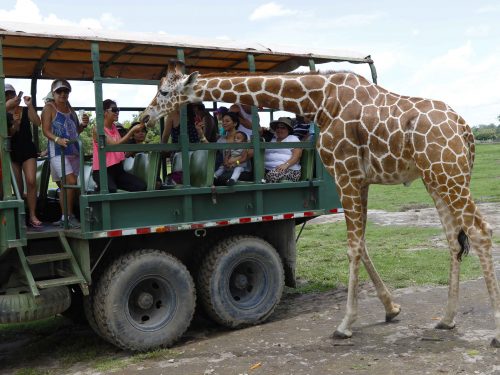
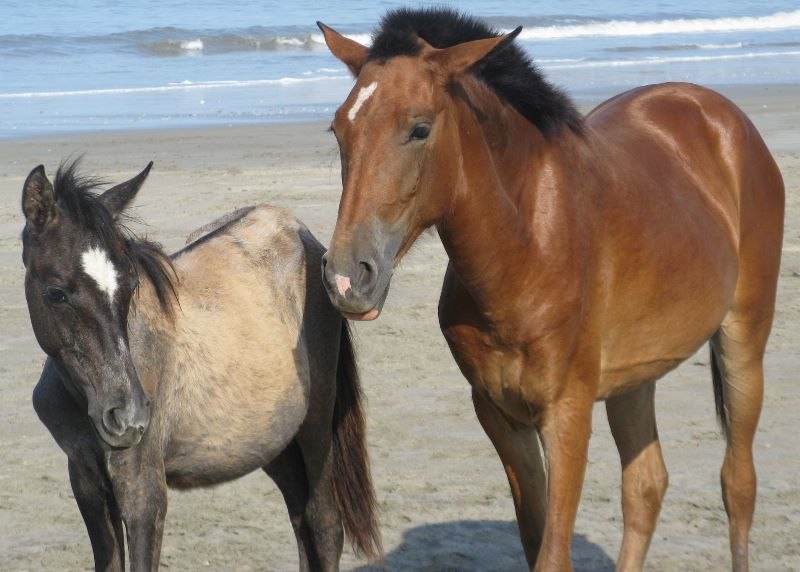

Comments